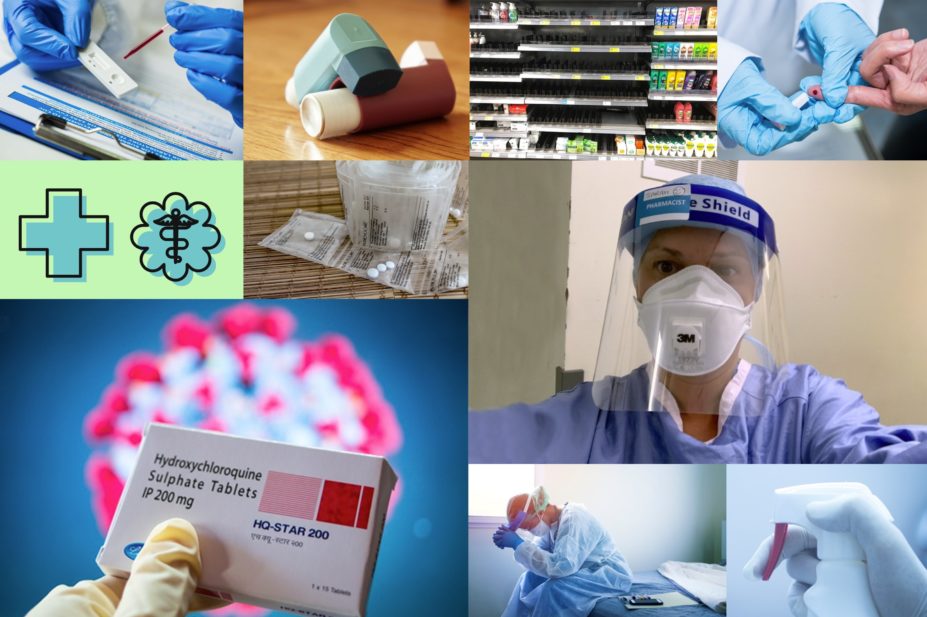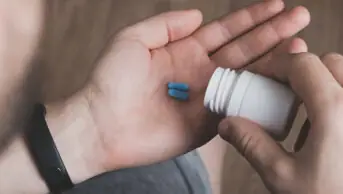
Our news and views team has worked hard to keep you in the loop during a year full of twists and turns. And, for our expert opinion leaders, there’s been no shortage of COVID-19 developments to comment on, or pharmacy predictions to ponder.
But during a time when even experts were facing the unknown, we know how important it has been to share the experiences of exceptional pharmacy professionals on the ground — from Yinka Kuye, the pharmacy educator who prepared pharmacists, doctors and nurses for battle at London’s Nightingale hospital, to Geraint Jones, a pharmacist facing the devastating personal impact of ‘long COVID’.
So here are your favourite opinion pieces of 2020:
10. What you are saying about fast-track medical training for pharmacists
In February 2020, just before the pandemic took hold, the talk of the pharmacy profession was whether pharmacists should be given a quick route to retrain as doctors. The Department of Health and Social Care (DHSC) confirmed that it was looking at a “flexible” approach to medical training, meaning pharmacists would not have to complete the usual 5,500 hours of training, over a minimum of five years, to become a doctor. Here’s what you said about this idea.
9. Serology testing for COVID-19 is the way forward, but we could face a long wait
In March 2020, prime minister Boris Johnson hailed the COVID-19 antibody test as a “game changer”, but in April 2020, The Pharmaceutical Journal warned that an effective COVID-19 antibody test would not come over night…
8. COVID-19 antibody testing not yet a ‘game changer’
… and we were right. By August, we had run another editorial to caution anyone who thought the antibody test would be a get-out-of-jail-free card. There is little evidence to suggest those with positive results from currently available antibody tests are immune to being reinfected and there are still concerns over the tests’ accuracy to begin with. We’re also still waiting for an effective point-of-care antibody test.
7. Why we must urgently rethink prescribing short-acting bronchodilators for asthma
Nothing changes if it isn’t challenged, and for too long respiratory pharmacist Darush Attar-Zadeh has seen too many asthma patients over-reliant on their reliever inhaler. That’s why, in February, he showed his support for the Global Initiative for Asthma’s radical overhaul of their guidelines for managing asthma. For adults and adolescents with mild asthma, who have infrequent symptoms, the guidelines recommend treating these symptoms with as-needed low-dose inhaled-corticosteroid-formoterol, without the need for regular preventer treatment. Inhaled short-acting beta agonist inhalers have been the first-line treatment for asthma for around 50 years; however, Attar-Zadeh argues a move towards inhaled-corticosteroid-formoterol is “ground-breaking yet logical”.
6. How I faced COVID-19 as a critical care pharmacist in one of the UK’s worst-hit regions
The north west of England has been one of the UK regions worst affected by COVID-19. But before the very first surge in cases, critical care pharmacist Greg Barton remembers the eerily quiet calm before the storm. And then the wave hit. Barton recounts his staff’s struggle at seeing their own colleagues intubated and ventilated on the intensive care unit.
5. They don’t teach you how to cope with wearing your PPE when you burst into tears on the COVID-19 ICU
Pharmacist Sarah Seddon also shared her experiences of working in critical care this year, which she says has been “one of the most difficult phases of [her] career”. Here, she describes her strained relationship with her mask — protecting her, but hastening her breath, and stopping others from seeing her smile, or tears.
4. Antidepressant withdrawal can be a horrible experience — are tapering strips a potential solution?
When patient James Moore wanted to stop his antidepressants, he was advised to “take half a tablet [each day] for a week and then stop completely,” but many patients facing devastating withdrawal symptoms are realising this may be too short a withdrawal period. Here, researcher Peter Groot (who faced his own battle with antidepressant withdrawal) describes taperings strips — tools that could revolutionise medicine withdrawal. The strips, comprised of small daily pouches containing consecutively lower doses to be taken each day, would allow patients to regulate the speed of their dose reduction. However, the UK health authorities have yet to take note.
3. Pharmacists are on the front line of COVID-19, but they need help too
At the very start of COVID-19’s grip on the UK, we called on the government to urgently afford pharmacists financial support to keep caring for our most vulnerable. In March, the DHSC announced it would provide £300m in advance funding to community pharmacies (and later an extra £70m), but insisted this would have to be repaid. In November, we reported that the government is considering writing off these payments, but talks between the government and the Pharmaceutical Services Negotiating Committee continue.
2. COVID-19: I had to close and disinfect my consultation room after an at-risk patient presented at my pharmacy
On the day this blog was published, 13 March 2020, just 2,260 cases of COVID-19 had been confirmed in the UK — at this juncture, coming across an ‘at-risk’ patient was still somewhat a macabre novelty. Here, Lindsey Fairbrother describes the disruption to her pharmacy when she had to close off her possibly contaminated consultation room for an industrial clean. She ends by saying: “For now, our pharmacy is back to normal”. At the time of writing, a further 2.07 million cases have been confirmed in the UK.
1. Down, but not out: hydroxychloroquine could still have a role against COVID-19
Our most-read opinion piece this year was, unsurprisingly, related to COVID-19 — this one on the role of hydroxychloroquine against COVID-19. Once tipped as a favourite for treating patients with COVID-19, hydroxychloroquine was later found to be infeffective in lowering the risk of death in patients with the virus. But here, leaders on the COPCOV trial in the UK, Martin Llewelyn and William Schilling, argue that hydroxychloroquine still has a place in preventing COVID-19 infection. “Vaccines will offer the best hope for robust population-wide protection,” they say, but while we wait for the vaccines to be rolled out, this drug could be a cheap and safe way of protecting our key workers most at risk of exposure to the virus.
Still popular from 2018 and 2019:
- It’s not just medicines that improve health: pharmacists need a better understanding of nutrition
- Demanding change: pharmacy professionals must unite to stamp out racial discrimination
- What my surgical menopause can teach pharmacists about HRT
- Beyond cannabis: why we should look at legalising other illegal drugs for medical use to benefit patients
- Ignorance is not bliss: why we need more empowered patients
Get in touch
Is there an issue you’d like to see expert analysis on? Or perhaps you have an idea for a comment piece? Pitch your ideas to: abigail.james@rpharms.com


